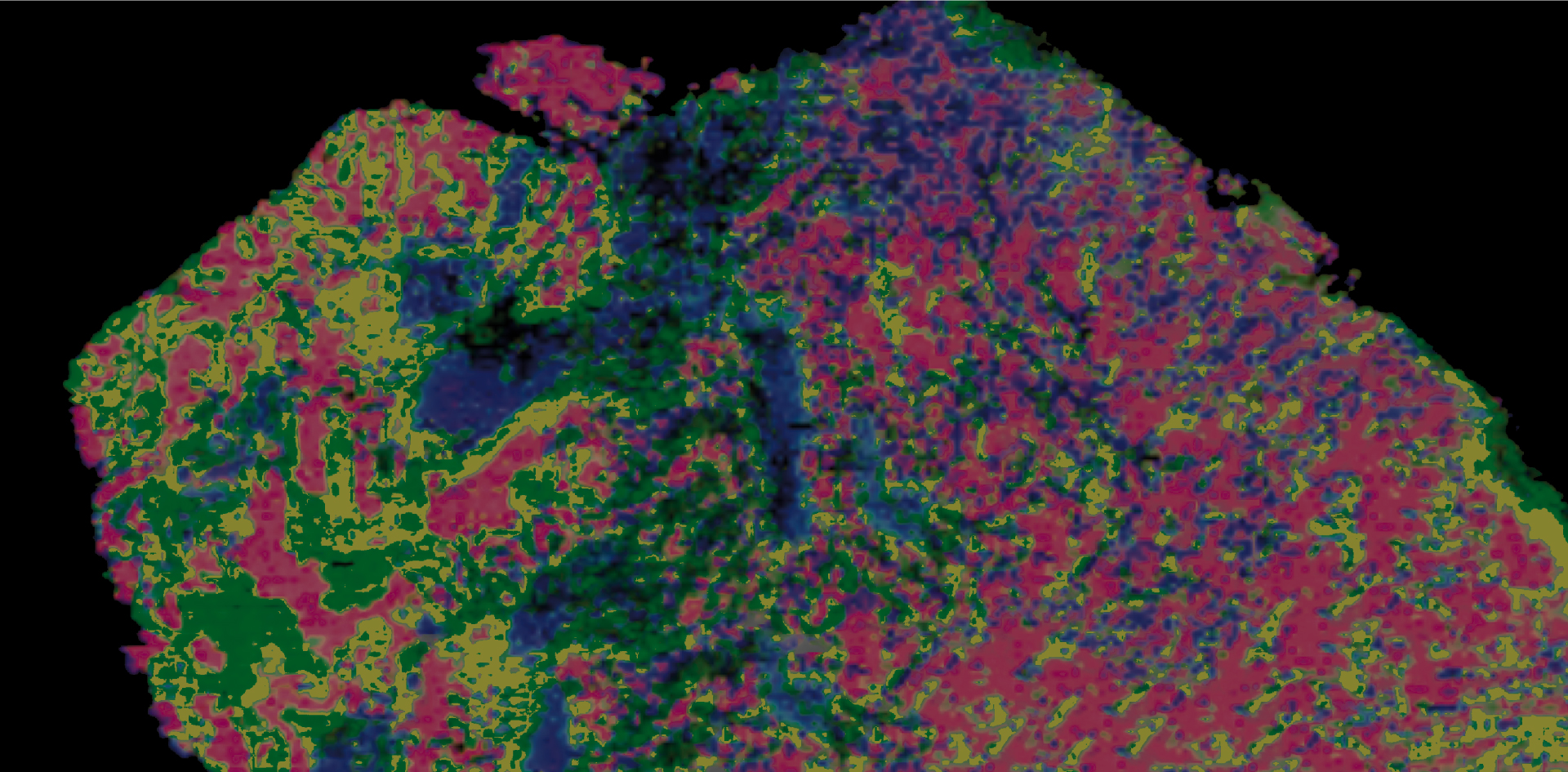

LabCast: Targeted Analysis of Proteins in Breast Cancer using the MALDI HiPLEX-IHC workflow
Overview
The MALDI HiPLEX-IHC workflow, with photocleaveable mass tags from AmberGen, offers the unique capability to evaluate spatial information of a targeted panel of proteins within a cancer sample. Tune in to hear about how this workflow has added value to the research being done by Dr. Peggi Angel, which will be followed up by a thorough demonstration of the HiPLEX-IHC workflow from our application scientists! They will walk you through the basics of MALDI Imaging and how to prepare samples successfully for targeted protein experiments in order to take your cancer biology research to the next level.
Key learning objectives:
- Overview of the study of cancer through MALDI Imaging, specifically utilizing MALDI HiPLEX-IHC
- Introduction to sample preparation for this workflow, with a highlighted focus on the overall simplicity
- Understanding of the value of integrating MALDI-HiPLEX IHC with other MALDI Imaging and non-MALDI Imaging approaches to provide greater biological context
Who should attend:
- Research scientists with limited or no exposure to MALDI Imaging who are interested in cancer biology
- Research scientists with active MALDI Imaging experience but limited exposure to MALDI HiPLEX-IHC
Speakers
Peggi Angel, Ph.D., Assistant Professor, Medical University of South Carolina, Charleston, SC, USA
Dr. Peggi Angel is an Assistant Professor at the Medical University of South Carolina, where she has developed numerous technological advances of MALDI Imaging for application to the study of cancer and cardiovascular disease. Dr. Angel currently serves as the President of the Imaging Mass Spectrometry Society (IMSS). She has led the way in MALDI Imaging for numerous application areas, including high spatial resolution imaging, cell culture imaging, and targeted protein imaging. Dr. Angel has significantly utilized the MALDI HiPLEX-IHC workflow as an important tool in her research work, including for multiple high-impact publications. Dr. Angel’s current work focuses on high-throughput analysis of extracellular matrix and N-glycans in cancer and cardiovascular disease.
Andrew DelaCourt, Ph.D., Field Application Scientist in Imaging, Bruker, Charleston, SC, USA
Dr. Andrew DelaCourt is a Field Application Scientist at Bruker focusing on MALDI Imaging applications. Dr. DelaCourt recently completed his Ph.D. work in the laboratory of Dr. Anand Mehta at the Medical University of South Carolina, where he utilized MALDI Imaging for the identification of N-linked glycan biomarkers of genetic subtypes of hepatocellular carcinoma. Dr. DelaCourt has authored multiple research articles on the topics of hepatocellular carcinoma, glycobiology, and the development of MALDI Imaging workflows to target specific N-glycans of interest. Dr. DelaCourt brings his expertise in cancer biology and glycobiology to Bruker in order to further contribute to the application of MALDI Imaging in those areas.
Daniel Castro, Ph.D., Application Scientist in Imaging, Bruker, Billerica, MA, USA
Dr. Daniel Castro is an Applications Scientist at Bruker focusing on MALDI imaging. Dr. Castro completed his Ph.D. in the lab of Jonathan Sweedler at the University of Illinois-Urbana-Champaign, where he focused on high-throughput single-cell and single-organelle measurements as well as accelerating tissue MALDI-FTICR imaging. Dr. Castro brings his expertise in high-throughput MALDI measurements to Bruker.
Catherine Kita, Scientist, AmberGen, Billerica, MA, USA
Catherine Kita is a Scientist at AmberGen focusing on MALDI-IHC. Catherine completed her Master’s at Drexel University, where she focused on Sequential Elution LC-MS method development utilizing a pH gradient. Prior to joining the AmberGen team, Catherine worked developing LC, LC/MS and biological assays for the pharmaceutical sector. Catherine is currently working on the development of targeted MALDI-IHC panels for a variety of cancers and neurological diseases.
For Research Use Only. Not for use in clinical diagnostic procedures.